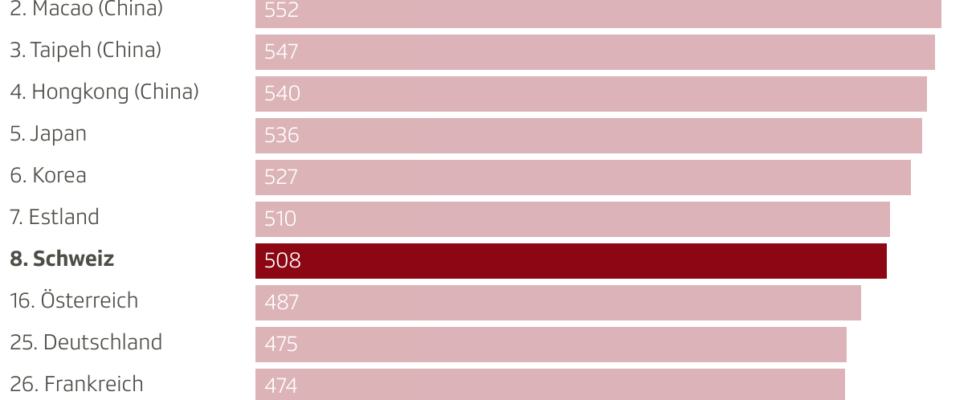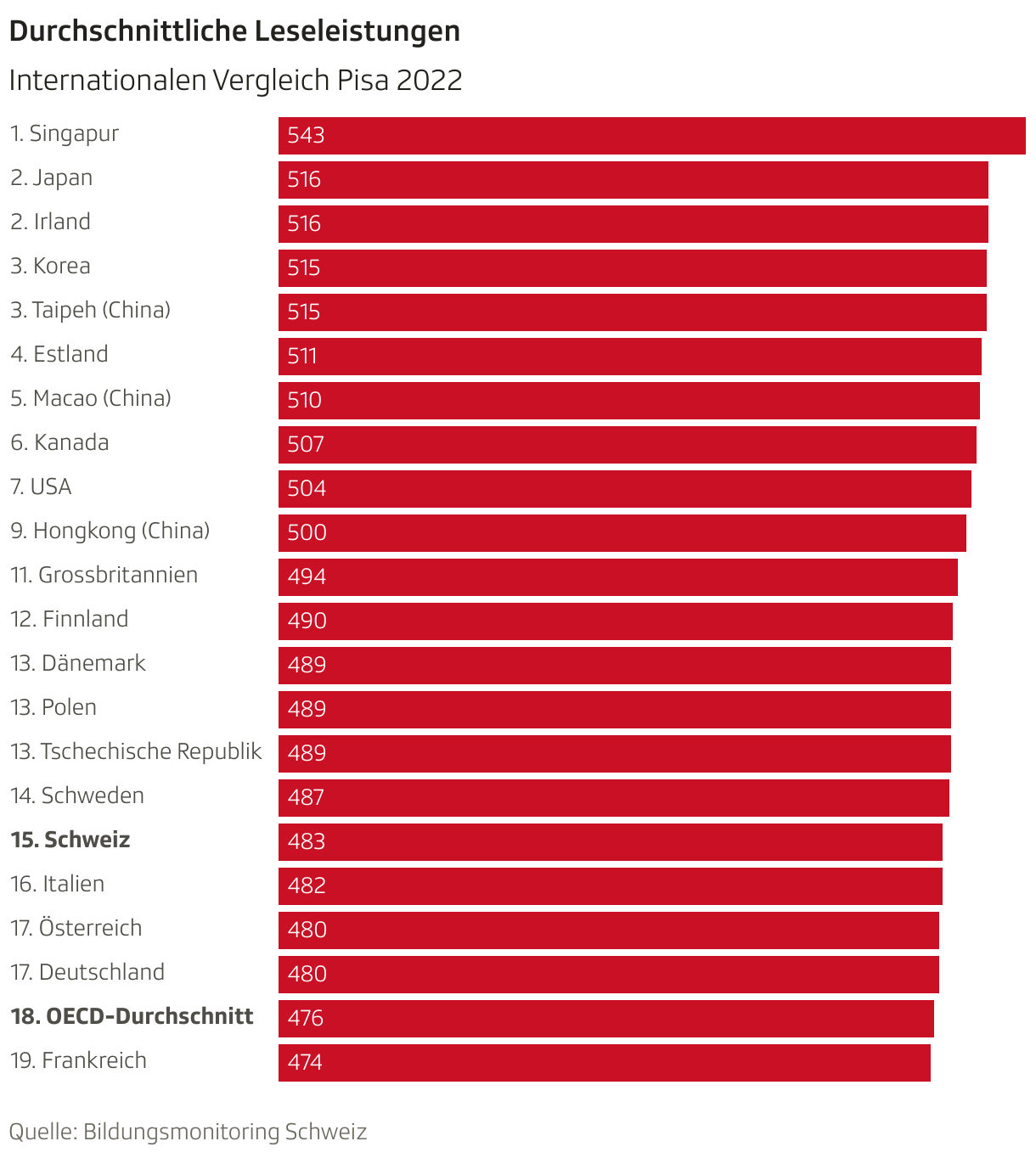Contents
Despite good results, there is a downward trend in math. Almost a fifth fail to meet the minimum requirements.
Pupils from Switzerland will also take part in the PISA study in 2022. Achievement tests were taken in the areas of mathematics, reading and science – with mathematics being the main domain. The performance of the 15-year-olds surveyed was above the average for the OECD countries (Organization for Economic Cooperation).
Report on the PISA study 2022
Mathematics: very good, but declining
Result: Here, Swiss students achieve a very good result with an average of 508 points. Only six countries achieve higher values - all countries from East Asia. The neighboring countries Austria (487), Germany (475), France (474) and Italy (471) are behind Switzerland. The international leader is Singapore (575).
Classification: As in previous PISA studies, Switzerland’s result is a very good result, as stated in the report as part of the Swiss Education Monitoring. Nevertheless, there are three abnormalities:
- There has been a slight decline in mathematics performance since 2015.
- Almost a fifth of Swiss 15-year-olds do not achieve the minimum requirements for basic mathematical training. This proportion does not decrease over the years.
- There is a very large difference in performance between young people from the lowest and those from the top quarter of social background.
Reading: moderate to good
Result: The average reading performance of students in Switzerland is 483 points, which is also above the OECD average (476). 14 countries achieved higher results, nine countries achieved a comparable result and 57 countries achieved a significantly lower result. Singapore also scored the most points here (543).
Classification: The reading performance of Swiss students appears to have been stable since 2015. However, a quarter do not achieve the minimum skills. This proportion has not decreased for years.
Natural sciences: good to very good
Result: When it comes to natural sciences, Switzerland is also above average with 503 points (485). Nine countries do even better, led by Singapore again (561). But the comparison countries Estonia (526) and Finland (511) are also in the top segment. Eight countries are on par with Switzerland, the remaining 63 countries do less well, including Germany (492), Austria (491), France (487) and Italy (477).
Classification: The slight downward trend of the last two surveys in the scientific achievement of Swiss young people has slowed down. Compared to the comparison countries, performance has improved since 2018. Nevertheless, almost a fifth of Swiss students do not reach the minimum level.
Reasons for the decline in benefits
A possible explanation for the decline in mathematics performance could be the changing attitudes of students. 15-year-olds in Switzerland are more afraid of mathematics in 2022 than in previous surveys.
But the increasing problem surrounding the shortage of teachers could also be an explanation. Students from schools with disabilities achieved significantly poorer performance in all three domains of mathematics, reading and science due to a lack of teachers.
In addition, the students were exposed to major academic challenges in the wake of the Covid pandemic. Many young people report positive learning experiences and a high level of well-being during this time. On the other hand, learning motivation was significantly negatively affected. It was missing in around half of the 15-year-olds.

